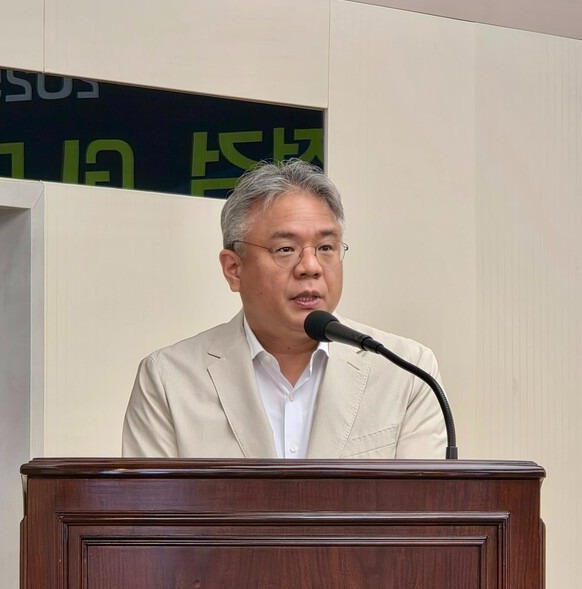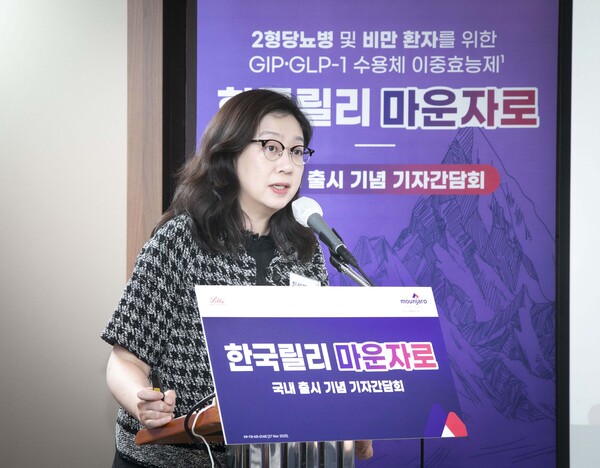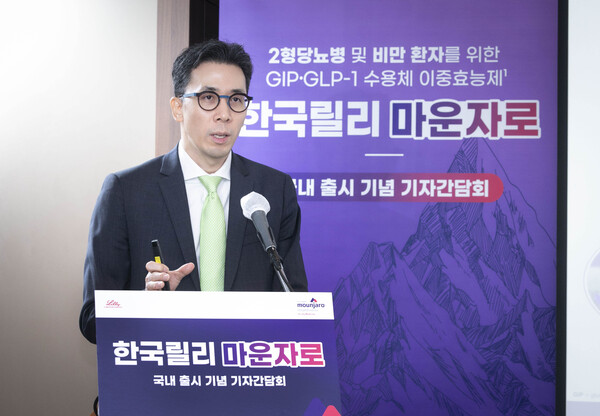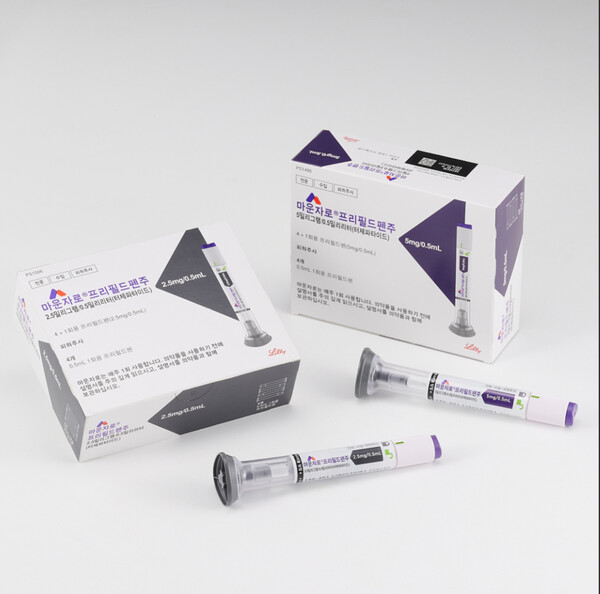
Most Korean doctors agree the new obesity injections work. What they cannot agree on is whether they can be taken for life.
Hanyang University Professor Park Jung-hwan, who leads the Korean Society for the Study of Obesity’s policy committee, called it “unrealistic” to imagine a lifelong drug market without answers on safety, cost and what happens after patients stop.
In an interview with Korea Biomedical Review last month, he noted that older adults on the medicines lose more muscle, and Korea has no consensus on the age to start or stop. Even if affordability were solved, he asked, should a 75-year-old keep suppressing appetite when irregular eating is already a geriatric challenge?
The answer, he admitted, is not clear, and that uncertainty alone should temper the hype.
Park likened today’s optimism to an earlier era in diabetes care, when each new pill or injection promised revolution. Complications declined, yet the disease kept spreading. “The same principle applies here,” he said.
Patients may slim down, but the problem does not vanish. Unless diet, exercise and behavioral therapy are built alongside the drugs, the weight, like the disease burden, will come back.
The room at Eli Lilly’s press conference in Seoul on Tuesday to mark the launch of Mounjaro (tirzepatide) in Korea did not disagree.

Professor Choi Sung-hee of endocrinology at Seoul National University Bundang Hospital told reporters that if reimbursement ever comes, it will not cover everyone. “Ideally, all GLP-1s could be covered for patients with both diabetes and obesity,” she said, before quickly adding that “realistically that will not happen.”
Her view was starkly hierarchical: patients with a body mass index of 30 and cardiovascular disease first, then fatty liver disease, then sleep apnea. Step by step, she said, “priority should go to those at highest risk.”
When asked how far that prioritization could stretch, she pointed to Wegovy’s (semaglutide) expanding list of trials. “Wegovy already has strong data in fatty liver disease, and approval seems a matter of time,” she said. “Novo also just received approval in sleep apnea. So coverage could expand that way, step by step.”
Coverage elsewhere shows how tight the rules can be. Japan’s insurer began reimbursing Wegovy in February 2024, but only for patients with severe obesity or multiple comorbidities, capped at 68 weeks.
In the United States, Medicare still does not pay for anti-obesity drugs prescribed for weight loss, even as private insurers expand access. Korea, by contrast, has not even conducted a formal economic evaluation. “You could say the country is behind the trend,” Park said.
The rebound problem underscores his concern. When patients stop taking tirzepatide, weight tends to return within months. Studies show that in discontinuation arms, patients regain close to 15 percent of body weight, while those who stay on lose even more.

Professor Lee Seung-hwan of endocrinology and metabolism at Seoul St. Mary’s Hospital put it bluntly: “Stopping the drug clearly carries a high risk of rebound.”
Lee elaborated later, saying patients cannot treat the pens as a forever fix. “The period on treatment has to be used to reshape lifestyle habits,” he said. “Otherwise, when the drug is stopped, everything unravels.”
He added that orals might soften the landing for some. “They’re cheaper than injectables. If they are appropriate for the indication, they may help,” though, he conceded, “the extent of rebound depends entirely on how much lifestyle modification the patient manages.”
The practical advice he offers patients is almost old-fashioned. “If they can maintain the smaller meal sizes and activity levels they adopted while on the drug, the weight can be sustained,” he said. “But that is very difficult, which is why rebound happens.”
Sometimes he tells patients to take photos of themselves during treatment or keep food records, so that when the injections stop, they have something to hold on to.
Equity and the next question
For Professor Park, the drugs are less a miracle than a prompt to ask harder questions. He compared them to artificial sweeteners, once heralded as a healthier swap for sugar but ultimately limited because they never altered deeper habits. “If we ignore all of that and rely only on what we call a ‘dream drug,’ it’s unrealistic,” he said.
Doctors also worry about how these drugs will play out in old age. Park said he doubts semaglutide or tirzepatide will prove harmful, but wonders whether they will preserve quality of life at 75 or 80, when appetite is already irregular and muscle wasting accelerates.
Signals in fatty liver and even dementia are intriguing, he said, but the larger question is quality of life over time. “Weight loss at older ages can be as harmful as weight gain,” he warned.
Yet there are no long-term data on what decades of appetite suppression might mean. The strict rules that help at 45 can harm at 75, he said. No real-world 10-year data exist to guide their use across that span, and there are not even shared rules on how to stop.

Even if the clinical riddles are solved, the money problem remains. Korea’s single-payer system has been praised for keeping drug prices low, but Professor Choi called it a double-edged sword.
Obesity is still treated “more as a cosmetic issue than a disease,” she said, and that perception makes it difficult to justify reimbursement. Professor Lee was more blunt: without a policy shift, “the chances of reimbursement are slim.”
Industry knows it too. Lilly Korea said it applied for reimbursement of tirzepatide for type 2 diabetes in 2023 and is waiting on government review. For obesity, company officials said at Tuesday’s conference, policy must change first. Co-promotion with local firms is under review. Nothing is final.
Equity looms large in Park’s calculus. He described what he called the “Elon Musk effect,” a shorthand for the way wealth bends access.
When the Tesla chief boasted about Wegovy use in the U.S., it underscored, for Park, how the rich can afford cutting-edge therapies while those most at risk cannot.
In Korea, he added, obesity prevalence is highest among lower-income and lower-education groups, especially women. “Children in those households are more likely to become obese too,” he said, “so an obese household can be seen as a public health issue.”
The professors at the conference returned to the same refrain. Choi reminded reporters that while Korea has advantages -- a single-payer system that covers the entire population -- its drawback is the lingering view that obesity is self-inflicted. “That makes it very difficult to expand reimbursement within our universal system,” she said.
Lee added his own frustration. “From what I’ve seen at policy meetings, the government does not yet take a forward-looking stance,” he told the room. Attempts at cost-effectiveness evaluations have been made, but progress has been slow. He paused, then added: “So we wait.”
For now, patients will keep lining up for prescriptions, and doctors will keep warning that the miracle might not last. Park summed up the tension best. “Yes, we can take weight off,” he said. “But then what comes next?”
Related articles
- Novo’s Wegovy shows heart benefit but Korean doctors see Lilly’s Mounjaro as stronger on weight loss
- Novo Nordisk’s weight-loss drugs see over 1.1 million prescriptions in Korea, raising misuse concerns
- Wegovy proven effective in East Asians with lower BMI, 1st study confirms
- MFDS will prevent the abuse of obesity drugs for aesthetic purposes
- Lilly’s Mounjaro wins Korean nod for sleep apnea in obese adults, challenging PAP dominance
- Novo Nordisk, Kakao expand digital health pact into obesity in Korea
- [Column] Hidden advertising behind Wegovy reviews
- ProGen releases PG-102 clinical trial results at European diabetes meeting
- Wegovy misuse spreads to kids, pregnant women, exposing safety loopholes
- Wegovy ushers in double-digit weight loss era, redefining metabolic disease treatment
- [Interview] ‘Obstructive sleep apnea is a whole-body disease, not a sleep issue’

